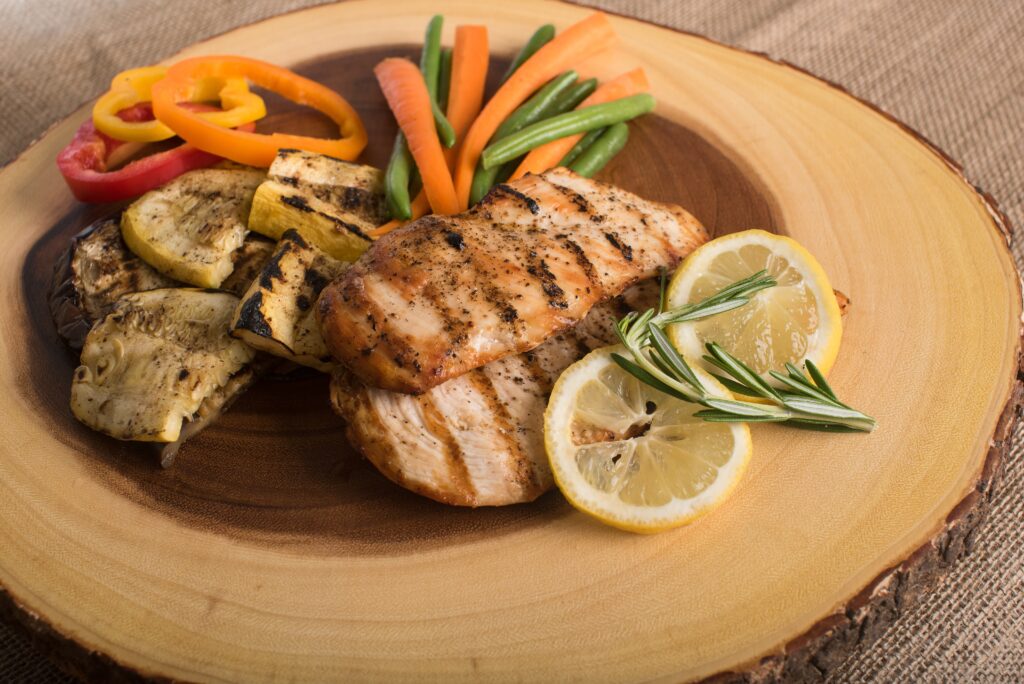Protein is an essential macronutrient that plays a fundamental role in muscle growth and repair. For individuals seeking to enhance muscle mass, a diet rich in high-quality protein is crucial. This essay explores the significance of protein in muscle gain and provides an extensive list of protein-rich foods, highlighting their nutritional profiles and benefits. Mohit Tandon from Chicago suggested Protein Rich Food for Muscle Gain.
The Role of Protein in Muscle Gain:
- Muscle Protein Synthesis (MPS): Protein serves as the building blocks for muscle tissue. Consuming an adequate amount of protein is essential for stimulating Muscle Protein Synthesis (MPS), the process through which the body builds new muscle.
- Amino Acids and Essentiality: Proteins are composed of amino acids, some of which are essential and cannot be produced by the body. These essential amino acids must be obtained through diet, emphasizing the importance of consuming a variety of protein-rich foods.
- Energy Source and Nutrient Timing: Protein also functions as an energy source, particularly during intense physical activity. Nutrient timing, or consuming protein around the time of exercise, can further enhance its effectiveness in promoting muscle protein synthesis.

Protein Requirements for Muscle Gain:
- Individual Variations: Protein requirements vary among individuals based on factors such as age, weight, activity level, and specific fitness goals. Athletes and those engaged in resistance training typically require higher protein intake to support muscle growth. – Mohit Tandon Chicago
- Recommended Daily Allowance (RDA): While the general RDA for protein is 0.8 grams per kilogram of body weight, individuals aiming for muscle gain may benefit from higher protein intake, often ranging from 1.2 to 2.2 grams per kilogram.
- Protein Distribution: Distributing protein intake evenly across meals, including pre- and post-workout, can optimize muscle protein synthesis throughout the day.
Protein-Rich Foods for Muscle Gain:
The following is an extensive list of protein-rich foods, categorized to provide a comprehensive understanding of various protein sources.
Animal-Based Proteins:
- Chicken Breast: Lean and versatile, chicken breast is a staple in muscle-building diets, providing high-quality protein with minimal fat. – Mohit Tandon Chicago
- Turkey: Similar to chicken, turkey is rich in protein and can be an excellent alternative for variety.
- Lean Beef: Lean cuts of beef, such as sirloin or tenderloin, offer not only protein but also essential nutrients like iron and zinc.
- Fish (Salmon, Tuna, Cod): Fatty fish like salmon provides protein along with omega-3 fatty acids, promoting overall health and muscle recovery.
- Eggs: A complete protein source, eggs contain all essential amino acids. Eggs are rich in nutrients, including vitamins B12 and D.
- Dairy (Milk, Greek Yogurt, Cottage Cheese):. Dairy products are excellent sources of protein and contain essential nutrients like calcium and vitamin D.
- Whey Protein: A convenient supplement derived from milk, whey protein is rapidly absorbed, making it an ideal choice post-workout.
Plant-Based Proteins:
- Legumes (Beans, Lentils, Chickpeas): Rich in both protein and fiber, legumes provide a plant-based protein source with additional health benefits.
- Quinoa: A complete protein containing all essential amino acids, quinoa is a versatile grain suitable for various dishes. – Mohit Tandon Chicago
- Tofu and Tempeh: Soy-based products like tofu and tempeh are complete protein sources and popular among vegetarians and vegans.
- Edamame: Young soybeans, or edamame, are a protein-rich snack with a favorable amino acid profile.
- Nuts and Seeds (Almonds, Chia Seeds, Hemp Seeds):. While not as protein-dense as animal sources, nuts and seeds contribute valuable protein along with healthy fats.
- Seitan: Made from gluten, seitan is a high-protein meat substitute commonly used in vegetarian and vegan diets.
Considerations for Optimal Muscle Gain:
- Protein Quality: The quality of protein, determined by its amino acid profile, influences its effectiveness in supporting muscle gain. Complete proteins contain all essential amino acids.
- Nutrient Density: Opt for nutrient-dense protein sources that provide additional vitamins and minerals to support overall health.
- Hydration: Staying well-hydrated is crucial for optimal muscle function and protein metabolism.
- Balanced Diet: While protein is essential, a well-rounded diet including carbohydrates and fats is necessary for overall health and energy balance.
- Individual Variability: Consider individual preferences, dietary restrictions, and ethical choices when selecting protein sources.
Conclusion:
In conclusion, protein is a vital component for individuals aiming to gain muscle mass. This essay has explored the role of protein in muscle gain, outlined protein requirements, and provided an extensive list of protein-rich foods from both animal and plant sources. Achieving optimal muscle gain involves not only meeting protein needs but also considering factors such as protein quality, nutrient density, and individual preferences. By incorporating a variety of protein sources into a well-balanced diet, individuals can support their muscle-building goals while promoting overall health and well-being.
